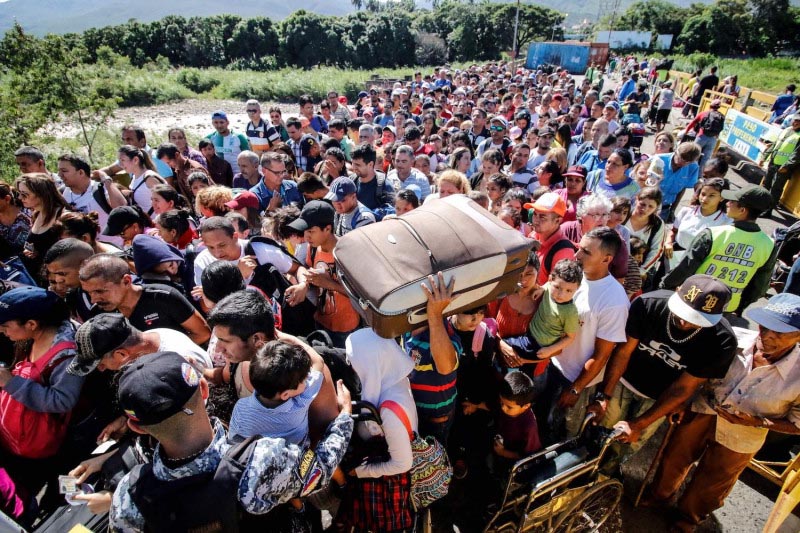What had been, up to late last year, something of a resurgence of Venezuela’s oil exports, due primarily to clandestine shipping arrangements targeting the Chinese markets (and circumventing United States sanctions in the process) has been taking a tumble since early this month, according to reports from Bloomberg.
During the first week of this month Bloomberg was reporting that oil sales from the South American country believed to possess the largest oil reserves anywhere, had plummeted sharply in December under the weight of stepped up United States scrutiny for oil tankers on the high seas originating from Venezuelan ports seeking to circumvent the sanctions. Bloomberg reported that the recent net effect of the intensified sanctions watch has “left some of the South American country’s cargoes stranded in Asia and that with the competition for markets among fellow OPEC members set to heat up, Venezuela’s oil exports are likely to come under even greater pressure in the period ahead.
The recent ease on Venezuelan oil exports had come at a high price. Some cargo loaded in December are probably unlikely to have arrived in China as yet, and stepped up US sanctions could further impede shipments, going forward.
The squeeze of the Venezuelan economy resulting from Washington’s targeting of its oil exports has added to the woes arising out of continued outward migration to other countries in the region, a circumstance which is creating socio-economic pressures for host countries. In December, Relief Web – a humanitarian information service provided by the United Nations Office for the Coordination of Humanitarian Affairs (OCHA) – reported that the number of Venezuelan refugees and migrants could reach 7 million this year if the Maduro administration remains in place and the borders of neighbouring countries remain open.
Recently, the plight of Venezuelans fleeing the country became a further focus of international attention after the remains of 33 migrants who had fled the country by sea were discovered in Venezuelan waters after a failed bid to get to the Caribbean Community (CARICOM) member country, Trinidad and Tobago.
The plight of Venezuelan migrants and refugees have reportedly been made worse by the onset of the coronavirus pandemic and the treatment of those who have been forced to return home.
What a December 2020 Organization of American States (OAS) Situation Report on Venezuela describes as the “paralysis” in the country’s economy coupled with “the measures taken during the health emergency” have reportedly created additional challenges associated with care, protection and integration of significant numbers of vulnerable Venezuelans whom it says were “stigmatized and criminalized upon their return.” According to the report, 2020 concluded with 5.4 million Venezuelans exiled and highlights what it says are “the growing number of Venezuelans” who disappear or die in pursuit of illegal migration.





